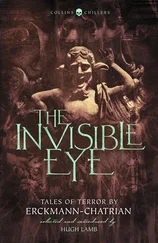“I do not know him,” I said, “and I doubt if I shall get to know him. He hides away from people, and even the owners of the house do not see him.”
“It is a good sign when people don’t know a scholar. I like scholars who don’t show up in every place and make themselves into a public spectacle. Let me tell you something. I once came to London and informed a certain scholar there that I had brought manuscripts with me. He got busy and came along with two escorts, a journalist and a photographer. He took all the material I showed him and sat himself down in the pose of a great savant looking at his books, while the photographer stood there taking pictures. Two or three days later, someone showed me a newspaper. I looked at it and saw a face framed by books printed alongside praises of that scholar, who, it seemed, had discovered precious works that were quite unknown until he brought them to light. What do you think of that?”
I said to Gamzu, “I think as you do.”
Gamzu looked at me with an expression of annoyance. “You don’t know what I think, so why say you think as I do?”
“Very well. I don’t think as you do.”
“Are you making fun of me?” he asked.
“Not of you,” I answered, “but of that scholar, and of those like him, who waste their energies in trying to prop up their reputation. Whereas if they concentrated on their work, possibly they would become more famous.”
“They would not become more famous.”
“If so, they are right in behaving as they do.”
“I must go,” said Gamzu.
It was near midnight when he left, and I walked with him part of the way. The moon was full and the entire city glistened like the moon. If you have ever seen such a night, you will not find it strange that somnambulists leave their beds to go out and wander with the moon. When we reached the Georgian Quarter at the Damascus Gate I parted from Gamzu, expressing the hope that he would find his wife. He took out a handkerchief, wiped his eyes, and said, “God willing.”
“If you want to get in touch with me,” I said, “you will find me at my home. I mean to go back in the morning.”
V
I returned to the Greifenbachs’ house and went back to bed. Sleep came quickly, and I knew nothing until I was roused by the sound of train wheels. The train reached Garmisch and stopped there. The door of the compartment opened and there was a view of high mountains and streams; I could hear a voice singing yiddal, yiddal, yiddal, vah, pah, mah. I was drawn by the voice and wanted to follow it. The door was shut against me. The moon came out and covered me with her light. I smiled at her with one eye and she smiled back with a grin that covered all her face.
But there was no train. I was in bed at the Greifenbachs’. I turned over to one side and pulled the blanket over my eyes, because the moon was shining on my face. I was thinking of how the world has shut itself in so that none of us can go where he wishes, except for the moon, that wanders over all the earth, singing yiddal, yiddal, yiddal, vah, pah, mah.
After lunching at a restaurant in town, I had gone home to get on with my work. But when I broke off to make myself some coffee, I found there was not a drop of water in the tap. I went up to the roof and inspected the water tanks. They had become overheated in the sun and the water at the bottom of the tanks was barely an inch deep. Jerusalem, a dry place, was at that time badly in need of water. I left my work behind and went over to the Greifenbachs’, for their house has a cistern, such as you find in the older houses of Jerusalem that were built when people drank rain water.
They had lived through many lives, the houses of Jerusalem. There is not one without a long story to it, especially the first ones to be built outside the walls. The Greifenbachs’ house was no exception.
About seventy years ago, there came to the land a grandee of the grandees of Gallipoli, Signor Gamaliel Giron, to spend the close of his life in the Holy City. He found no house to suit his needs, for the Jewish population was confined to the old courtyards within the walls, and every courtyard was inhabited by many families, and each family was a large one. So he bought himself two thousand square cubits of land outside the city, below the Damascus Gate, and built there a spacious house and planted a garden. And because the house was a long way from the populated area, with no synagogue in the neighborhood, he set apart one room as a private chapel and hired men to come and make up a Minyan for prayer. On his demise he bequeathed the house to the charitable society Gomlei Hasadim. In time those in charge of the society’s finances became pressed for money to pay the army tax, and mortgaged the house. The house remained under a mortgage for some years, they were unable to redeem it, and accordingly it was sold by those who had advanced the loan.
The house was sold to a German named Gotthold Gänseklein, who was head of the sect of Guardians, who had seceded from the sect of the Gemeinschaft der Gerechten , founded in the city of Gerlitz by Gottfried Greilich. Gänseklein, his wife and his mother-in-law lived in this house, and here he would hold prayer meetings and preach concerning the three true guards for redeeming the body and extending the limits of the soul. One night a quarrel occurred between Gänseklein’s wife and her mother. The wife bit her mother’s nose in order to disgrace her before the husband. People came to hear of this affair and Gänseklein was obliged to quit the country for shame.
Three Georgian brothers-in-law, who supported themselves by manufacturing Gouda cheese, now bought the house and made their cheese there. The Great War broke out, and Gamal Pasha expelled them from the country, because they were suspected of Zionism, the Star of David having been found stamped upon the cheese. After the war the Council of Delegates rented the house for their fellow member Georg Gnadenbrod. The house was repaired, the refuse heap cleared away, the garden replanted and the estate fenced in. Mr. Gnadenbrod had scarcely taken possession when his wife, Gnendlein, put her foot down and said that she did not wish to live in Jerusalem. They returned to Glasgow and the house was made into business offices. Then came the earthquake, which damaged the building and weakened the roof. For some years the house stood untenanted until Gerhard Greifenbach rented it and repaired it and decorated it and installed electric lighting and plumbing and other modern improvements. He and his wife had lived there until they felt a longing to go abroad and rest a while from the strain of life in our country, and I was asked to keep an eye on the house lest squatters break in and take possession. And now I was spending two nights there.
Cut off from the settled area, the house stood alone in the valley, surrounded by its garden gleaming in the light of the moon. And in that moonlight the garden and all that was in it, every tree, every shrub, seemed detached and unconcerned with its neighbor’s affairs. Only the moon made no distinctions and shone impartially on all.
I stood at the window and looked out at the garden. Every tree, every shrub slept its deep sleep; but among the trees movements could be heard. If these were not the footsteps of Ginat returned from his journey, perhaps they were Gabriel Gamzu’s. When I had gone along with him on the previous night I had asked him to let me know how his wife was; he had come back, then, to tell me. Or perhaps it was not Gamzu; after all, it could be anybody.
But that pure, perfect moonlight did not deceive me. It was none other than Gamzu walking this way. I went and opened the door and showed him into the room. Gamzu picked a chair and sat down. He took out some paper and rolled himself a cigarette. He put the cigarette to his lips, lit it and sat there smoking, paying no attention to me as I waited to hear if he had found his wife. I was annoyed, and in my annoyance said nothing.
Читать дальше












